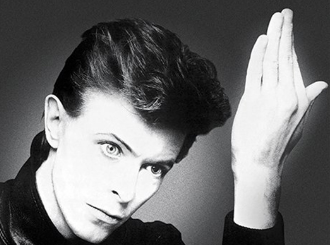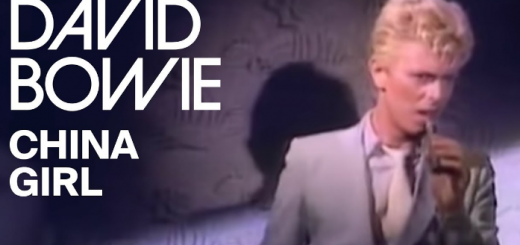“The Man Who Sold the World” by David Bowie
As we have pointed out in the past, the early 1970s’ era was a juncture in music history where many Western artists began experimenting with spiritual ideas that are not native to their civilization.
And in the case of David Bowie, that would be Buddhism. Moreover, according to the singer he had originally written this piece (“The Man Who Sold the World”) when he was just 19 years of age. So when you combine David’s youth with what we shall refer to as his novice understanding of Buddhism, the product is tracks like this, which many analysts have deemed as being a bit indecipherable.
And at the center of understanding what this song is actually about lies the task of ascertaining exactly who “the man who sold the world” actually is.
Who really is the man who sold the world?
He’s not presented as some type of general figure or even a personification, as perhaps one may assume. Rather this is a specific individual. Or perhaps we can say it/he is an entity, given what’s been discussed in the previous paragraph and the nature of the lyrics that the vocalist interacts with directly throughout this narrative.
And let’s also say, in the name of trying to derive some type of general storyline/setting from this piece, that in the first paragraph the two of them meet on a level akin to the astral plane.
Meanwhile, David himself has never appeared anxious to issue an official interpretation of this piece. And likewise, that’s as far as we’re compelled to go in the name of playing it safe. To be honest, as already alluded to, this is a narrative which necessitates a significant level of creative interpretation.
Is the man Jesus? Is he Buddha?
The first out-on-a-limb speculation is that “the man who sold the world”, i.e. the addressee, would be someone akin to Jesus to Buddha. For instance, it is obvious that the vocalist is addressing an individual whom he is under the impression had already “died… a long, long time ago”. He is also surprised that this individual regards him as a personal “friend”.
Now the implication would be that if you’re cool with someone like Buddha or Jesus, then you are in fact pious. And in the chorus, the vocalist asserts that he “never lost control”.
That can be interpreted as his way of saying that he has never given in to the temptation of the dark side. And the reason we can proceed to theorize that David Bowie may have possessed such a, shall we say self-righteous attitude is because he did in fact, in 1969, come out with a song entitled “God Knows I’m Good”.
And even though that piece may be based on a character other than the vocalist himself, the point is that David was very God-conscious, and to even name a track so takes a lot of audacity, if you will.
So with that understanding in mind, we can regard the vocalist as somewhat of a religious adherent – a wanderer who is searching for the true meaning of life. And throughout his travels, he comes to realize that even though the masses are very quick, they’re akin to being dead on the inside, i.e. from a spiritual perspective.
In other words, the world is not following the right path. And readers will also recognize the aforementioned point as a common religious standpoint (i.e. the idea that most people live in sin) in a manner of speaking.
In Conclusion
Of course none of that would explain what the titular metaphor means. Our closing theory is that this is a song, if the above explanation is near to its actual meaning/history, may have been too personal for David to publicly expound on.
Furthermore, it may have been that some of these understandings were such that he couldn’t put into words at the time. So like a true legendary musician he rather relied on his artistry, i.e. metaphors, to get these points across.


Facts about “The Man Who Sold the World”
This is the title track from an album David Bowie (1947-2016) dropped on 4 November 1970.
The producer of this track is a Brooklynite by the name of Tony Visconti. And this piece, which was written by David Bowie, was recorded in the vocalist’s hometown of London. David recorded it alongside fellow Briton and regular collaborator Mick Ronson. The recording was done during the latter stages of the development of the aforementioned album.
This song is considered a David Bowie classic. It has over the years been included on a plethora of his live and compilation projects. But as it stands, the original was never released as a single. And even “The Man Who Sold the World” album wasn’t, at first, anything like a resounding success. David himself even once revealed that he was less than enthused to work on it.
But as the story goes, the tune was covered by a Scottish vocalist known as Lulu in 1974. This was a couple of years after David Bowie’s rendition came out. And her version proved to be a top 10 hit in both the UK and Ireland.
And this success, combined with the fact that this classic had been covered by countless other musicians throughout the years, led to an increased interest in the original rendering.

The Nirvana Cover
As stated above, one of the most notable covers of “The Man Who Sold the World” was by Lulu. However, there is another equally famous cover of this classic out there. And the cover in question is by none other than Nirvana. This iconic 1990s grunge band covered this masterpiece as part of their 1995 MTV Unplugged in New York project.
And by the way, it should be noted that the late Kurt Cobain was actually a huge David Bowie fan.
And that version, as far as the United States goes, was a bigger hit than Lulu’s. Additionally it was certified silver in the UK.
More Interesting Facts
The original, working title of this song, before it featured the titular phrase, was “Saviour Machine”.
Theoretically, the lyrics were influenced by a number of other works of art. However, by the looks of things, none of those theories have actually been verified by David Bowie himself. But there is one influence on this song that has been confirmed via a number of sources. And this influence comes in the form of an 1899 poem entitled The Psycho-ed. The said poem is by an American poet named Hughes Mearns (1875-1965).
Another notable musician who would go on to become a regular David Bowie collaborator that participated on this track is a drummer by the name of Woody Woodmansey.
In 2020, “The Man Who Sold the World” (the album) was reissued under that very title. However, it has been noted that the original title of the project was Metrobolist. In fact Mercury Records, the label behind its issuance, changed the name of the album for its US release without Bowie’s knowledge. Owing to this, the album was re-issued in 2021. The re-issue came along with some previously unreleased work. It was released by Bowie’s estate under its original moniker, Metrobolist, in 2021.








